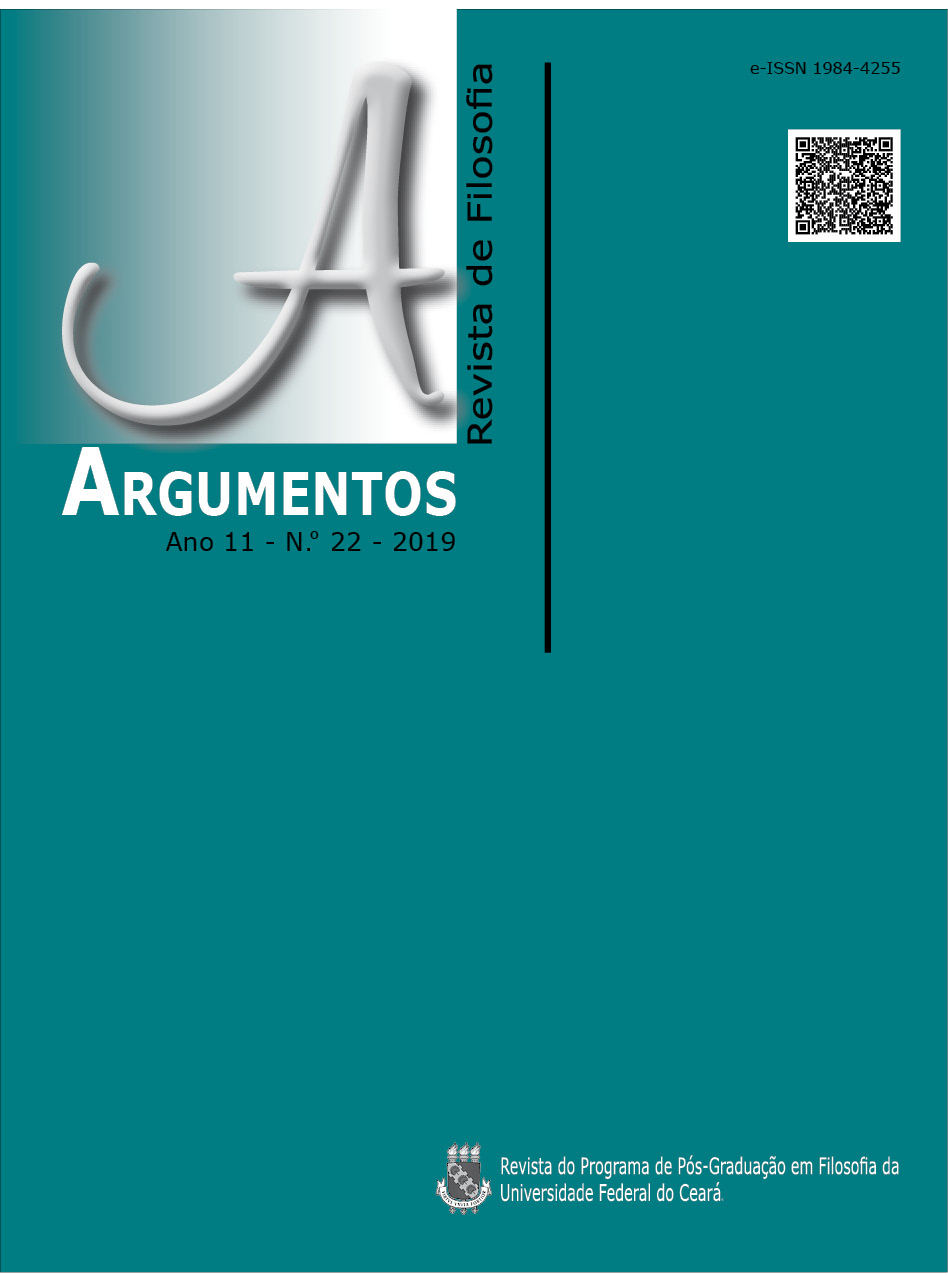The contribution of Jose Ortega y Gasset’s thinking on life in the contemporary philosophy
DOI:
https://doi.org/10.36517/Argumentos.22.11Keywords:
Human life. Vital reason. History of life.Abstract
This article unfolds the contribution of Jose Ortega y Gasset’s thinking, a Spanish philosopher who dedicated part of his work to think on issues related to human life and to propose a philosophical method called vital reason. Ortega’s concept of life is fundamental to engage in any reflective thinking proposed by the philosopher considering it as a key category in the process of understanding reality. From Nietzsche’s vitalism to Dilthey’s historicism, Ortega considers presenting his vital thought with originality by proposing a reflection that conceives life as an event, and this, as a personal reality. Accordingly, to understand this reality considered by him as radical implies to seize reason as an organ of understanding that is not restricted only to the process of scientific or philosophical theorization. The vital reason as a method helps the individual to understand himself within his life history, which is marked by innumerable contradictions.References
ARAS, R.E. El mito en Ortega. Pamplona: Eunsa, 2008.
BONILLA, J. Z. Ortega y Gasset. Plaza Janes: Barcelona, 2002.
_________. Ortega y Gasset. Comares: Granada, 2013.
CASAGRANDE, L. Vida e razão: a crítica de Ortega y Gasset à filosofia contemporânea. Caxias do Sul: EDUCS, 2002.
CONILL-SANCHO, J. La superación del naturalismo en Ortega y Gasset. ISEGORÍA, nº 46, enero-junio, 2012.
GARCÍA, A. R. El labirinto de la razón: Ortega y Heidegger. Madrid: Alianza, 1990.
GAOS, J. Sobre Ortega y Gasset y otros trabajos de historia de las ideas en España y la America Española. México: Imprenta universitária, 1957.
GRACIA, J. José Ortega y Gasset. Taurus: Madrid, 2014. (eBook).
MARÍAS, J. Ortega y la idea de la razón vital. Madrid: Antonio Zuñica, 1948.
________. Introducción a la filosofía. 3. ed. Madrid: Revista del Occidente, 1953.
________. Meditaciones del Quijote. (Edición de Julián Marías). 8. ed. Cátedra: Madrid, 2010.
MEDINA, J. L. José Ortega y Gasset (1883-1955): vida y filosofía. Madrid: Biblioteca Nueva, 2003.
NICOL, E. Historicismo y existencialismo: la temporalidade del ser y de la razón. México: El colegio de México, 1950.
ORTEGA Y GASSET, J. Obras Completas, Taurus: Barcelona, 2017. (10 volumes).
_________. Meditación de la técnica. Espase-Calpe: Madrid, 1965.
_________. El tema de nuestro tiempo. Madrid: Revista de Occidente, 2006.
_________. Historia como sistema y otros ensayos de filosofía. Madrid: Revista de Occidente, 2008a.
_________. Espanã invertebrada. Alianza Editorial: Madrid, 2000.
_________. En torno a Galileo. Madrid: Revista de Occidente, 2008b.
_________. Meditaciones del Quijote. Ediciones Catedra: Madrid, 2010a.
_________. El hombre y la gente. Madrid: Revista de Occidente, 2010b.
_________. Qué es filosofía? Madrid: Revista de Occidente, 2010c.
LASAGA, J. La razón histórica como crisis de la razón. Actas: I Congreso Internacional de la Red española de Filosofía, v. XV, p. 31-39, 2015.
KANT, I. La Metafísica de los Costumbres. Trad. Adela Cortina y Jesús Conill Sancho. Madrid: Tecnos,1999.
SEVILLA, J. M. Prolegómenos para una crítica de la razón problemática: motivos en Vico y Ortega. Barcelona: Anthropos, 2011.
Downloads
Published
Issue
Section
License
Argumentos magazine is licensed under an International Creative Commons Attribution License.
The Magazine uses CC BY inclusion
1) The authors retain the copyright granted to the magazine or the right to initial publication, with the work regularly licensed under the Creative Commons Attribution, which allows the sharing of the work with acknowledgment of authorship and initial publication in this magazine.
2) The authors are authorized to contract additional applicable contracts, for non-exclusive distribution of the version of the work published in this journal (for example, publication in the institutional repository or as a chapter of the book), recognition of authorship and initial publication in this journal.
3) Authors are authorized and encourage to publish and distribute their work online (for example, in institutional repositories or on their personal pages) at any time before or during the editorial process, as they can generate productive changes, as well as increase the impact and reference of published work.




.jpg)










._._3.png)
1.jpg)
._._._.png)
